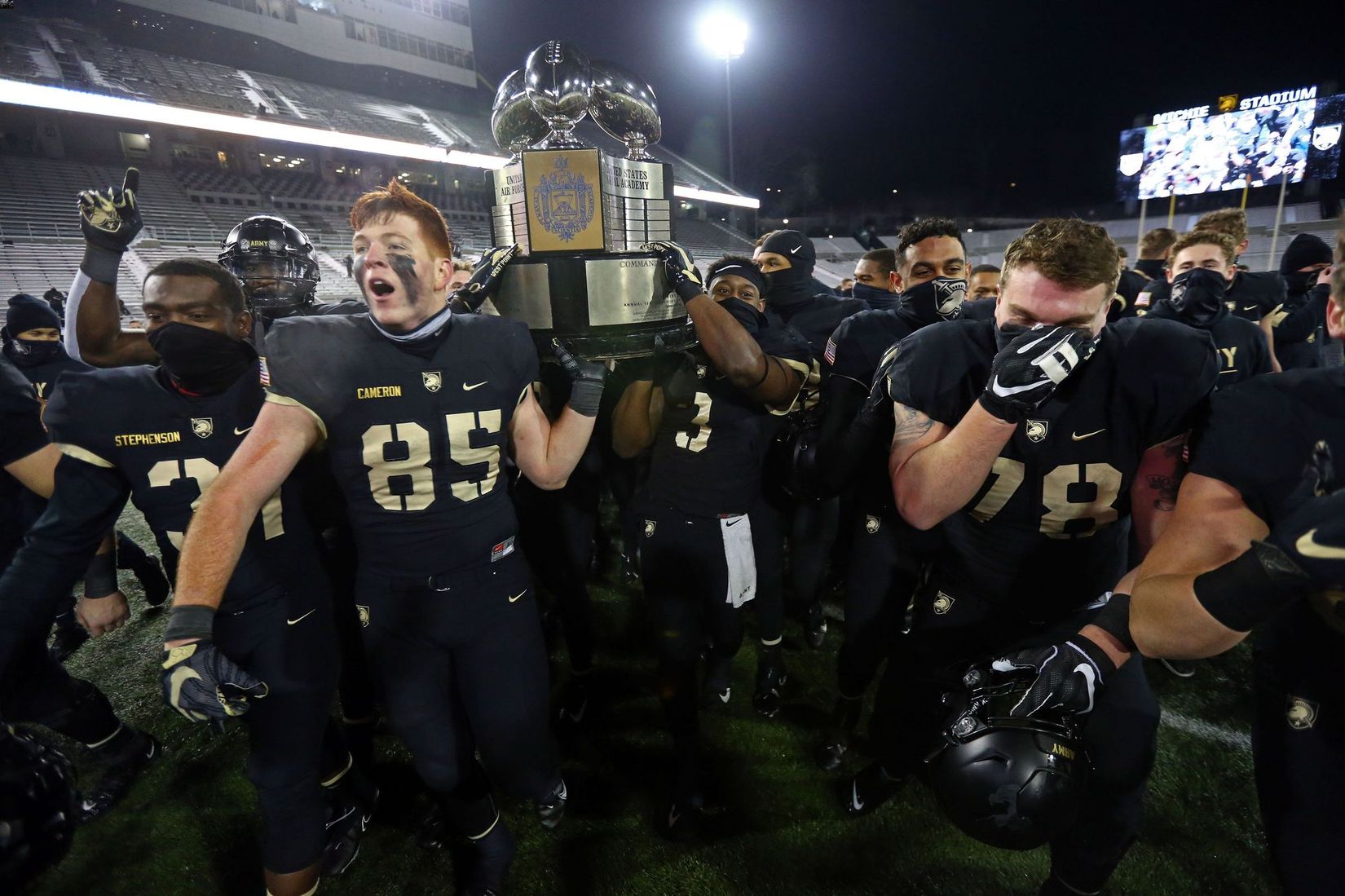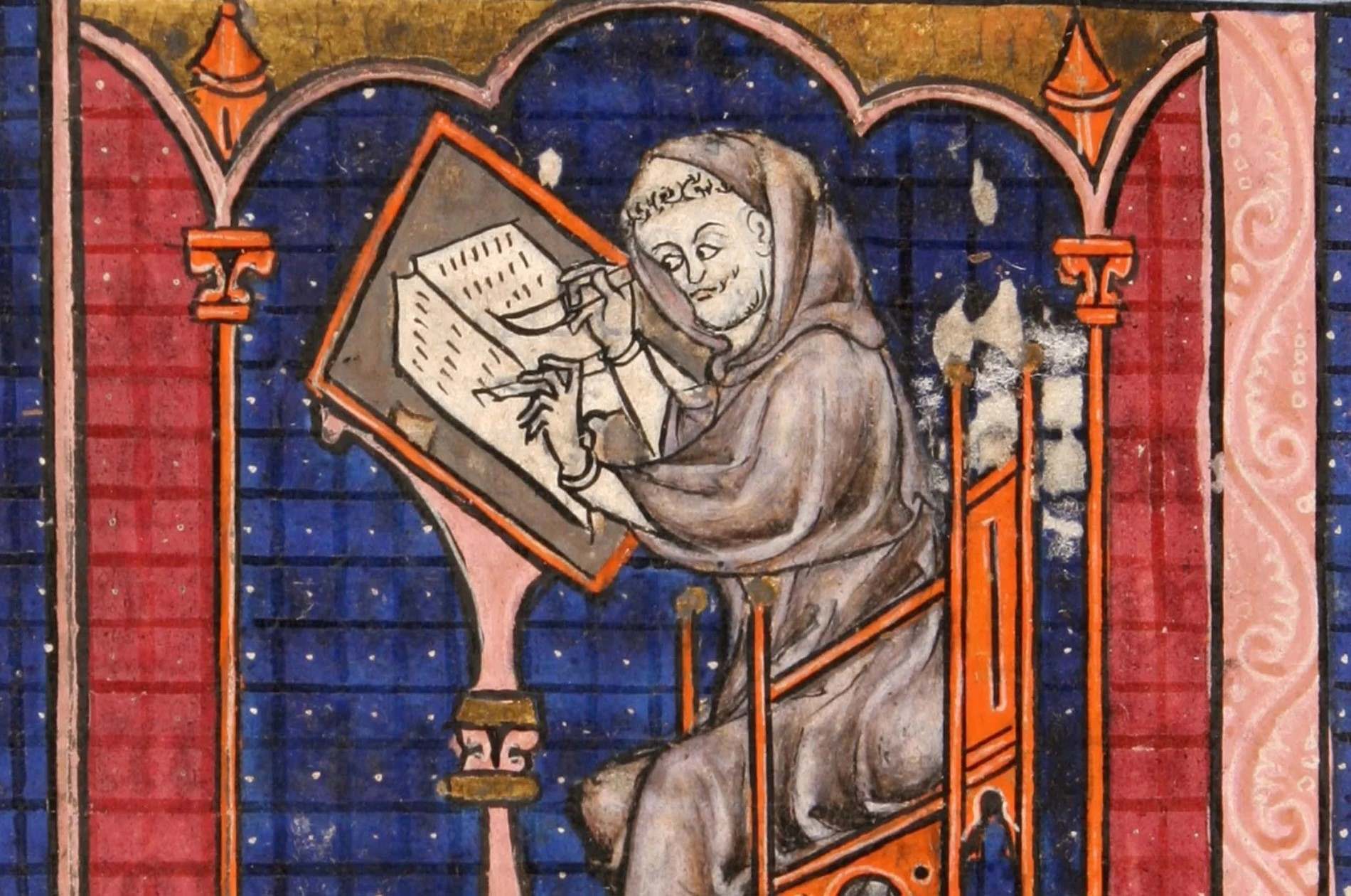
Did you know the Army Black Knights football team has been a powerhouse since 1890? With a history spanning over a century, the Black Knights have become a symbol of excellence and tradition in college football. From their home at Michie Stadium to their fierce rivalry with Navy, the team has left an indelible mark on the sport. They've produced three Heisman Trophy winners, claimed five national championships, and have 24 players enshrined in the College Football Hall of Fame. As they prepare to join the American Athletic Conference in 2024, the Black Knights continue to build on their storied legacy.
Key Takeaways:
- Army Black Knights football has a rich history dating back to 1890, with iconic players, legendary coaches, and a legacy of national championships and Heisman Trophy winners.
- The team faces depth concerns and preseason questions as they transition to the American Athletic Conference, aiming to improve on past seasons and secure a bowl game invitation.
The Rich History of Army Black Knights Football
The Army Black Knights football team, representing the United States Military Academy, boasts a storied history that dates back over a century. From its early beginnings to its modern-day achievements, the team has left an indelible mark on college football.
-
Historical Beginnings: The Army Black Knights football team began competing in intercollegiate football in 1890, making it one of the oldest programs in the United States.
-
Modern Era: The school's official record book considers the "modern era" of Army football to have begun in 1944. This year marks a significant shift in the team's history, with more comprehensive and consistent records.
-
NCAA Division: The Army Black Knights compete in the NCAA Division I Football Bowl Subdivision (FBS) as a member of the American Athletic Conference (The American).
Home Ground and Facilities
The home ground and facilities of the Army Black Knights are as iconic as the team itself. Michie Stadium, with its scenic location and modern amenities, provides a perfect backdrop for thrilling football action.
-
Home Stadium: The team plays its home games at Michie Stadium, which has a capacity of 36,000 and was built in 1924. The stadium is located at West Point, New York.
-
Field Surface: Michie Stadium features a FieldTurf surface, providing a modern and durable playing field for the Black Knights.
-
Athletic Director: The current athletic director of the Army Black Knights is Mike Buddie, who oversees all athletic programs at the United States Military Academy.
Leadership and Coaching
Leadership and coaching have played pivotal roles in shaping the success and legacy of the Army Black Knights football team.
-
Head Coach: Jeff Monken has been the head coach of the Army Black Knights since 2014, leading the team to several successful seasons and a return to conference play in 2024.
-
Conference Affiliation: Prior to joining the American Athletic Conference in 2024, the Army Black Knights played as an independent for most of their history, with a brief stint in Conference USA from 1998 to 2004.
-
Conference Realignment: The move to the American Athletic Conference was necessitated by conference realignment and the desire to have a clear path to a conference championship, which is crucial for College Football Playoff (CFP) consideration.
Rivalries and Championships
Rivalries and championships are the lifeblood of college football, and the Army Black Knights have their fair share of both. Their historic rivalries and championship wins have cemented their place in football lore.
-
Notable Rivals: The Army Black Knights have several historic rivals, including Navy and Air Force, with whom they compete for the Commander-in-Chief's Trophy. The annual Army-Navy game is one of the most iconic matchups in college football.
-
Heisman Trophy Winners: The Army Black Knights have produced three Heisman Trophy winners: Doc Blanchard (1945), Glenn Davis (1946), and Pete Dawkins (1958).
-
College Football Hall of Fame: A total of 24 players and four coaches from the Army Black Knights program are enshrined in the College Football Hall of Fame, reflecting the team's rich history and legacy.
-
Consensus All-Americans: The team has produced 37 consensus All-Americans, a testament to the high level of talent and performance exhibited by its players over the years.
-
National Championships: The Army Black Knights have claimed five national championships, including two AP Trophies in 1944 and 1945. Major selectors have also awarded championships in 1914 and 1916.
-
Claimed Titles: In addition to the five officially recognized national championships, Army has claimed three more titles from 1944 to 1946, further solidifying its place in college football history.
Legendary Players and Coaches
The Army Black Knights have been home to some of the most legendary players and coaches in college football history. Their contributions have left a lasting legacy on the program.
-
Historic Players: Notable players like Arnold Tucker, Rollie Stichweh, Bill Carpenter, Mike Mayweather, Joe Steffy, Doug Kenna, Bob Novogratz, Frank Merritt, Barry Nickerson, Glenn Davis, Doc Blanchard, Pete Dawkins, and Trent Steelman have all contributed significantly to the team's success.
-
Legendary Coaches: Coaches like Earl Blaik and Red Blaik have left lasting impacts on the program, guiding the team to numerous victories and championships.
Uniforms and Traditions
The uniforms and traditions of the Army Black Knights are steeped in history and pride. These elements add to the unique identity of the team.
-
Current Uniforms: The Army Black Knights wear uniforms featuring black, gold, and gray colors, reflecting the team's rich tradition and heritage. The fight song is "On, Brave Old Army Team," and the mascot is the Army Mules.
-
Marching Band: The United States Military Academy Band provides the energetic and patriotic music that accompanies the team during games, adding to the overall experience and tradition of Army football.
-
Outfitter: The team's uniforms are provided by Nike, ensuring that the players are equipped with high-quality gear that meets modern standards.
-
Website: Fans can stay updated with the latest news and information about the team through the official website, GoArmyWestPoint.com.
Current Challenges and Future Prospects
As the Army Black Knights prepare for the upcoming season, they face several challenges but also have exciting prospects ahead. The team's move to the American Athletic Conference marks a new chapter in its history.
-
Depth Concerns: Entering the 2024 season, there are concerns about depth at crucial positions such as quarterback, secondary, special teams, and defensive line. The team is working to address these issues to improve its overall performance.
-
Preseason Questions: The return to an under-center option scheme after experimenting with a shotgun option offense in the previous season adds another layer of complexity to the team's preparation. The Black Knights are just five weeks away from their inaugural game in the American Athletic Conference.
-
Inaugural AAC Game: The Army Black Knights will face Florida Atlantic in their inaugural American Athletic Conference game on September 7, 2024, marking a significant milestone in the team's history.
-
Non-Conference Games: The team opens the season with a non-league game hosting Lehigh on August 30, 2024, before facing Florida Atlantic in their first AAC game.
-
Senior Captains: The four senior captains—quarterback Bryson Daily, safety Max DiDomenico, defensive linemen Kyle Lewis, and Cody Winokur—along with head coach Jeff Monken, addressed the team's concerns at a press conference following the first preseason practice.
-
Optimism and Challenges: Despite the optimism expressed by the senior captains and coach Monken, the team recognizes that the margin for error is very small. They aim to improve on two consecutive 6-6 seasons and secure a bowl game invitation.
-
Commander-in-Chief's Trophy: The Black Knights took back the Commander-in-Chief's Trophy last season with wins over Air Force and Navy, demonstrating their resilience and determination.
-
College Football Playoff (CFP) Consideration: The move to the American Athletic Conference provides the Black Knights with a clear path to the College Football Playoff, which is crucial for their competitive aspirations.
-
AAC Membership: The American Athletic Conference has 14 member schools, with Army replacing SMU, who departed for the ACC. This realignment ensures that the AAC maintains its football membership at 14 schools.
Iconic Games and Moments
The Army Black Knights have been part of some of the most iconic games and moments in college football history. These events have shaped the team's legacy and added to its rich tradition.
-
Annual Army-Navy Game: The annual Army-Navy game will remain a standalone non-conference game played the week between conference championship games and the first round of the new 12-team College Football Playoff. This year's game will take place on December 14.
-
Other Sports Affiliations: While the football team is a member of the American Athletic Conference, most of Army's other sports teams compete in the Patriot League. Exceptions include ice hockey (Atlantic Hockey America), wrestling (Eastern Intercollegiate Wrestling Association), gymnastics (Eastern Collegiate Athletic Conference), and rifle (Great America Rifle Conference).
-
Notable Alumni: Notable alumni include President of the United States and General of the Army Dwight D. Eisenhower and General of the Army Omar Bradley, who were both part of the 1912 Army football team.
-
Historic Upsets: The 1913 game against Notre Dame is remembered as a historic upset, where Bradley was on the field when Notre Dame defeated Army. This game showcased the competitive spirit and resilience of the team.
Legendary Backfield Combinations
The Army Black Knights have had some of the most legendary backfield combinations in football history. These players have left an indelible mark on the program and the sport.
-
Legendary Backfield Combinations: The combination of Doc Blanchard and Glenn Davis is one of the most potent backfield combinations in football history. Both players were Heisman Trophy winners, with Blanchard winning in 1945 and Davis in 1946.
-
Pete Dawkins' Legacy: Pete Dawkins, a Heisman Trophy winner in 1958, was not only an exceptional halfback but also went on to become a Brigadier General, demonstrating his excellence in both military and athletic domains.
-
Trent Steelman's Achievements: Trent Steelman became the first quarterback in Army history to rush for over 2,000 yards in his career, leaving a lasting legacy in the team's history.
-
Ahmad Bradshaw's Leadership: Ahmad Bradshaw, a quarterback, led Army to success in the late 2000s, showcasing his exceptional leadership and strategic playmaking skills.
-
Arnold Tucker's Leadership: Arnold Tucker played a crucial role in Army’s success during the 1940s, leading the team with his strategic playmaking and leadership skills.
-
Rollie Stichweh's Impact: Rollie Stichweh was a talented quarterback in the early 1960s, remembered for his role in the famous 1963 Army-Navy game and his overall impact on the team.
-
Bill Carpenter's Versatility: Bill Carpenter was a versatile player who excelled as a halfback for Army. His speed and agility made him a formidable force on the field, contributing to the team’s achievements.
-
Mike Mayweather’s Prowess: Mike Mayweather’s prowess as a running back added a dynamic dimension to the team’s offense. His contributions on the ground were instrumental in the team’s success.
-
Joe Steffy’s Consistency: Joe Steffy was a standout offensive lineman, earning All-American honors during his time at West Point. His skill and consistency provided stability to the team’s offensive line.
-
Doug Kenna’s Leadership: Doug Kenna’s role as a quarterback showcased his leadership and strategic acumen. His on-field decisions and contributions played a key part in the team’s success.
-
Bob Novogratz’s Athleticism: Bob Novogratz was a standout end for Army, known for his receiving abilities and overall athleticism. His performances left a lasting impression on Army football.
-
Frank Merritt’s Reliability: Frank Merritt’s skills as a fullback contributed to Army’s offensive prowess. His ability to navigate through defenses and find the end zone made him a reliable offensive weapon.
-
Barry Nickerson’s Defensive Prowess: Barry Nickerson’s presence as a linebacker was crucial for Army’s defense. His tackling ability and defensive prowess made him a standout player for the team.
-
Glenn Davis’ Dynamic Skills: Glenn Davis, known as “Mr. Outside,” was a Heisman Trophy winner in 1946 and a two-time consensus All-American. His dynamic running skills and versatility left an indelible mark on Army football.
-
Doc Blanchard’s Dominance: Doc Blanchard, also known as “Mr. Inside,” paired with Glenn Davis to form one of the most potent backfield combinations in football history. Blanchard was a Heisman Trophy winner in 1945 and a three-time All-American.
-
Pete Dawkins’ Excellence: Pete Dawkins was an exceptional halfback and Heisman Trophy winner in 1958. His achievements extended beyond the football field, as he later became a Brigadier General, showcasing excellence in both military and athletic domains.
The Legacy of Army Black Knights Football
Army Black Knights football isn't just a game; it's a tradition steeped in history, honor, and excellence. From their beginnings in 1890 to their upcoming debut in the American Athletic Conference, the Black Knights have consistently showcased resilience and determination. With iconic rivalries, legendary players like Doc Blanchard and Glenn Davis, and memorable moments like the annual Army-Navy game, the team has left an indelible mark on college football. Their five national championships and three Heisman Trophy winners highlight their storied past. As they face new challenges and opportunities in the AAC, the Black Knights continue to embody the spirit of West Point. Whether it's the roar of the crowd at Michie Stadium or the pride of wearing black, gold, and gray, Army football remains a symbol of dedication and excellence. Here's to many more years of thrilling games and unforgettable moments.
Frequently Asked Questions
Was this page helpful?
Our commitment to delivering trustworthy and engaging content is at the heart of what we do. Each fact on our site is contributed by real users like you, bringing a wealth of diverse insights and information. To ensure the highest standards of accuracy and reliability, our dedicated editors meticulously review each submission. This process guarantees that the facts we share are not only fascinating but also credible. Trust in our commitment to quality and authenticity as you explore and learn with us.


